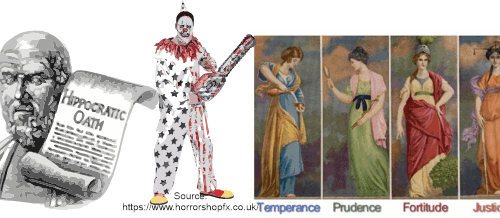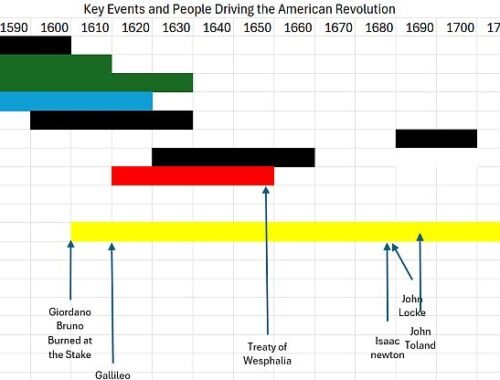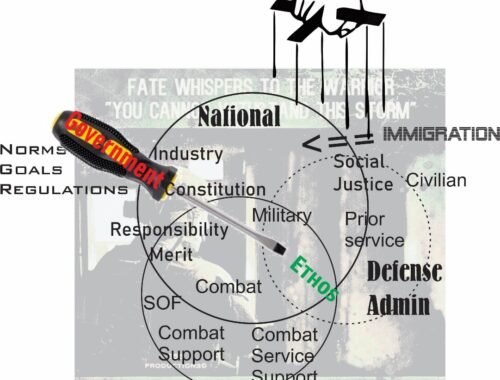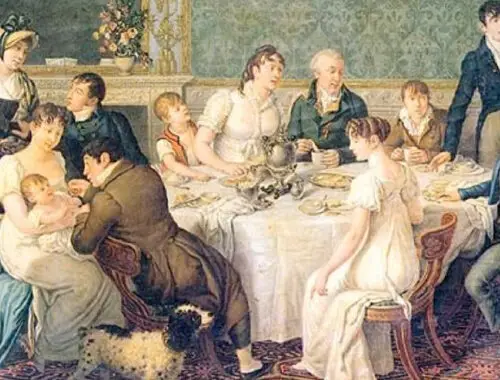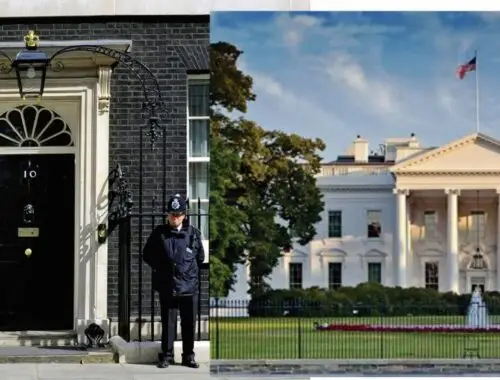Was our Culture Intentionally Disrupted and Broken, Part 1
The first step in community organization is community disorganization. The disruption of the present organization is the first step toward community organization. Present arrangements must be disorganized if they are to be displace by new patterns…. All change means disorganization…
Virtue-based Leadership, Part 4: Virtue, Morality, and Ethics
Abstract: While there are similarities and crossovers between morality, ethics, and virtue, they are not the same. For me, at least, morality is essentially based on operant conditioning—reward and punishment. Ethics are based on rules and systems. Both are…
DOGE—Killer Clowns and Virtue
Abstract: The Hippocratic oath tells the doctor to do first no harm. Yet that is what a surgeon has to do. Sometimes we need to do harm to do good. The trick is to balance the harm and good,…
Key Events and People Driving the American Revolution
This short piece fills in the gaps tradition education, even when it teaches the founding of the American Republic, leaves out the buildup to the revolution. It is important because the revolution is based on the cultural and philosophical concepts…
The Constitution and the Soldier
Every member of the US Armed Forces takes an oath to support and defend the Constitution of the United States against all enemies, foreign and domestic. But as the Annenberg survey (Annenberg 2024, Annenberg 2023 ) reports, many Americans have…
The Warrior Ethos: Part 2, Culture
Recall from part 1, Mirriam-webster defines Ethos as: “the distinguishing character, sentiment, moral nature, or guiding beliefs of a person, group, or institution”. Ethos is a manifestation of the cultural matrix from which it emerges. As the core culture changes,…
The Warrior Ethos: Part 1 Introduction
When a friend asked me to write a series on restoring the Warrior Ethos to the military, I started pondering a series of questions: What is a “warrior ethos”? How do we know it is missing and needs to…
Culture and Strategy: A Match not a Competition
“Culture eats strategy for breakfast.” – various, possibly Peter Drucker. “It must be considered that there is nothing more difficult to carry out nor more doubtful of success nor more dangerous to handle than to initiate a new order of…
Comparative Politics and Political Change: what Works and Why?
“A Republic, if you can keep it.” Bejamin Franklin. When I was in graduate school, I took a course on comparative political systems. The course readings seemed to favor the parliamentary system, and I took a bit of an…
Coexist Part 4: Hamas case Study
This part four of the Coexist series. It explores the Hamas case study introduced in Part 1. It builds on the analysis in Part 2 and Part 3. Why do so many of the social justice groups that seem to…


